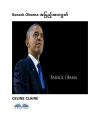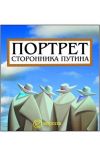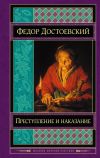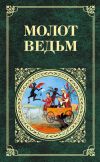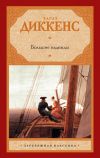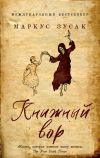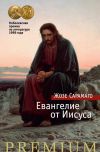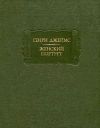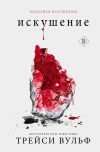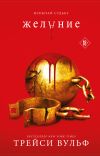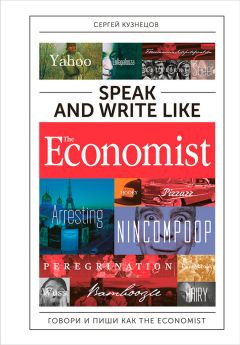
Автор книги: Сергей Кузнецов
Жанр: Иностранные языки, Наука и Образование
Возрастные ограничения: +12
сообщить о неприемлемом содержимом
Текущая страница: 4 (всего у книги 35 страниц) [доступный отрывок для чтения: 12 страниц]
Why do Americans spend such huge amounts of time, money, water, fertiliser and fuel on growing a useless smooth expanse of grass? Much better to cultivate something useful, like tomatoes.
Walmart did not become a $200 billion company without running down a few pedestrians.
Water flows towards money.
The recovery has resembled third-world traffic, where juggernauts and rickshaws, cars and cycles ply the same lanes at different speeds, often getting in each other's way.
Shoppers have been able to buy from out-of-state merchants since Sears issued its first mail-order catalogues in the 19th century.
Warren Buffett: «It's only when the tide goes out that you learn who's been swimming naked.»
The new strategy looks more promising, but as always success will depend on implementation.
Consider an imaginary Englishman's day. He wakes in his cottage near Dover, ready to commute to London. Chomping a bowl of Weetabix, a British breakfast cereal resembling (tasty) cardboard, he makes a cup of tea. His privatised water comes from Veolia and his electricity from EDF (both French firms). Thumps at the gate tell him another arm of Veolia is emptying his bins. He takes the new high-speed train to London: it is part-owned by the French firm Keolis, while the tracks belong to Canadian pension funds. At St Pancras station, a choice of double-decker buses awaits. In the last couple of years, one of the big London bus companies was bought by Netherlands Railways. A second went to Deutsche Bahn, the German railway company. In March, a third was taken over by RATP, the Paris public-transport authority (its previous owners were also French). The Dutch railways logo is emblazoned on buses across London. Thanks to RATP's logo, a stylised image of the River Seine now adorns hundreds more: most Londoners neither know nor care. As for Weetabix, a French billionaire is interested in buying the firm, according to press reports. Yet Britain still feels British.
Polaroid, whose once-iconic instant-photo firm, has only one significant asset now – its name.
In a diatribe against the Rothschilds, Heinrich Heine, a German poet, fumed that money «is more fluid than water and less steady than air».
New boss didn't magic away the problems.
Most state-owned companies are prone to over-staffing, underinvestment, political interference and corruption.
Putting business at the heart of the health-care system is not a must but a bug.
The word «company» is derived from the Latin words «cum» and «pane» meaning «breaking bread together».
The sheer size of the Al Saud clan has also helped cement the nation. There have been eight generations of Saudi rulers, dating back to 18th-century sheikhs who held sway in a few oasis towns near present-day Riyadh. Many have been prolific. King Abdul Aziz himself sired some 36 sons and even more daughters. The first son to succeed him, King Saud, fathered 107 children. King Abdullah is believed to have 20 daughters and 14 sons. The extended Al Saud family is now thought to number some 30,000, though only 7,000 or so are princes. Of these, only around 500 are in government, and only perhaps 60 carry real weight in decision-making.
There's no exaggerating China's hunger for commodities. The country accounts for about a fifth of the world's population, yet it gobbles up more than half of the world's pork, half of its cement, a third of its steel and over a quarter of its aluminium. It is spending 35 times as much on imports of soya beans and crude oil as it did in 1999, and 23 times as much importing copper – indeed, China has swallowed over four-fifths of the increase in the world's copper supply since 2000.
The world knows what it wants, but cannot agree on how to get what it wants.
The financial results of Chinese companies that global investors wish to buy into can be as unintelligible as the dialect spoken in the company town. It is said (with apparent sincerity) that some Chinese firms keep several sets of books – one for the government, one for company records, one for foreigners and one to report what is actually going on.
Nokia must still work to keep its chin above the waves.
The problem is that as soon as fun becomes part of a corporate strategy it ceases to be fun and becomes its opposite – at best an empty shell and at worst a tiresome imposition.
Roads, railways, water and gas mains, sewage pipes and electricity cables all move things around. So do the blood vessels of animals and the sap-carrying xylem and phloem of plants.
Beekeeping is one example beloved by economic theorists. Bees create honey, which can be sold on the market. But they also pollinate nearby apple trees, a useful service that is not purchased or priced.
The story of Ireland is like a fairy tale: from rags to riches and back to rags again.
The full-blooded, unapologetic pursuit of America's national interest.
The rich world is in the middle of a management revolution, from «motivation 2.0» to «motivation 3.0» (1.0 in this schema was prehistoric times, when people were motivated mainly by the fear of being eaten by wild animals).
Then there is «gladvertising» and «sadvertising», a rather sinister-sounding idea in which billboards with embedded cameras, linked to face-tracking software, detect the mood of each consumer who passes by, and change the advertising on display to suit it. The technology matches movements of the eyes and mouth to six expression patterns corresponding to happiness, anger, sadness, fear, surprise and disgust. An unhappy-looking person might be rewarded with ads for a sun-drenched beach or a luscious chocolate bar while those wearing an anxious frown might be reassured (some might say exploited) with an ad for insurance.
Romantics say that the bank used to prosper by deliberately not having any strategy at all.
China's leaders hew to Deng Xiaoping's dictum that «China should adopt a low profile and never take the lead.» China can hide its national demands behind a multilateral façade.
PepsiCo announced that it had developed the world's first bottle to be made entirely of a plastic consisting of plant-based materials, which can be fully recycled. Its «green bottle» is composed of switch grass, pine bark and corn husk. Pepsi hopes to produce bottles in the future using orange and potato peels and other by-products from food.
Saudi oil costs just $2 a barrel to produce, a small fraction of what it costs to extract the stuff in Alaska, say, or the North Sea. Demand from both Asia and America remains strong. Saudi Aramco, the giant state oil monopoly, is ramping up its production capacity. Having remained static at around 10m barrels per day for a generation, this is currently pushing 11m and may reach 12.5m by 2009 and perhaps 15m by 2015. Assuming a middle-of-the-range price of around $40 a barrel, the oil bubbling out of the ground could continue to be worth around $500m a day for many years to come. Oil exports, having bottomed out in 1998 at $35 billion, have since soared, hitting a record $160 billion in 2005. Last year's current-account surplus was close to $100 billion and the central bank's net foreign reserves rose to $135 billion, a jump of $90 billion in just three years.
A firm and an industry that had become accustomed to obscurity will have to get used to the limelight.
Mr Hayward set out to replace flash and fluff with nuts and bolts.
London, once a blue-blooded cocoon.
Сhina is quite open to yarn, but not jerseys, diamonds, but not jewelry.
Public transport in Los Angeles has a great future, and always will.
Mr Toyoda had been reading «How the Mighty Fall», a book by Jim Collins, an American management guru. In it, Mr Collins (best known for an earlier, more upbeat work, «Good to Great») describes the five stages through which a proud and thriving company passes on its way to becoming a basket-case. First comes hubris born of success; second, the undisciplined pursuit of more; third, denial of risk and peril; fourth, grasping for salvation; and last, capitulation to irrelevance or death.
There are lots of other jobs that aren't real. Designing a new plastic soapbox, making pokerwork jokes for public-houses, writing advertising slogans, being an MP, talking to UNESCO conferences. But the money's real work.
In theory, the case for joint ventures was compelling. The foreign partner provided capital, knowledge, access to international markets and jobs. The Chinese partner provided access to cheap labour, local regulatory knowledge and access to what used to be a relatively unimportant domestic market. The Chinese government protected swathes of the economy from acquisitions, but provided land, tax breaks and at least the appearance of a welcome to attract investment. «For a joint venture to be successful,» says Jonathan Woetzel of McKinsey, a consultancy, «you have to plan for it to die».
He was waltzing from job to job.
China is full of small and medium-sized companies that have fingers in many pies, taking advantage of opportunities as they arise.
In Britain there's London, London and London. In America there are scores of hubs.
The food stamps participation has soared since the recession began). By April 2010 it had reached almost 45m, or one in seven Americans. The cost, naturally, has soared too, from $35 billion in 2008 to $65 billion last year. Only those with incomes of 130 % of the poverty level or less are eligible for them. The amount each person receives depends on their income, assets and family size, but the average benefit is $133 a month and the maximum, for an individual with no income at all, is $200. Those sums are due to fall soon, when a temporary boost expires. Even the current package is meagre. Melissa Nieves, a recipient in New York, says she compares costs at five different supermarkets, assiduously collects coupons, eats mainly cheap, starchy foods, and still runs out of money a week or ten days before the end of the month.
Business people are fond of accusing business academics of being all mouth and no trousers (if the accusers are British) or all hat and no cattle (if they are Texan).
The ultimatum they received from euro-zone leaders at the G20 summit in Cannes to reform their economies – or else.
In a country where oil cash still enhances the allure of office, can only spell turbulent times ahead.
In 1500 Europe's future imperial powers controlled 10 % of the world's territories and generated just over 40 % of its wealth. By 1913, at the height of empire, the West controlled almost 60 % of the territories, which together generated almost 80 % of the wealth.
In Central Asia the most successful companies are sinecures of nepotism.
Insurance is banking's boring cousin: it lacks the glamour, the sky-high bonuses and the ever-present whiff of danger.
Fill up an SUV's fuel tank with ethanol and you have used enough maize to feed a person for a year.
Foundations were laid timber by timber, railway sleeper by railway sleeper.
Germany's hyperinflation in 1923 – it became cheaper to burn banknotes than to buy fuel.
Corruption is often blamed on plata o plomo – meaning silver or lead, bribes or threats.
Global business has been rocked by crises, from Enron to the financial meltdown. Harvard Business School (HBS), alas, played a role. Enron was stuffed with HBS old boys, from the chief executive, Jeff Skilling, downward. The school wrote a sheaf of laudatory case studies about the company. Many of the bankers who recently mugged the world's taxpayers were HBS men.
Hayward is in the meat grinder of public opprobrium along with Lloyd Blankfein, chief executive of Goldman Sachs, and Akio Toyoda, president of Toyota.
Contrary to popular belief, traffic in Atlanta is not always hellish. There are a good few days each year when it is merely purgatorial.
Consumer spending accounts for about 70 % of U.S. economic activity.
Sin taxes have a long history as a fiscal wheeze: Parliament first introduced levies on beer and meat in 1643 to finance its fight against the Crown. Levies on alcohol have persisted: tax is now around 53p on a pint of beer, £ 2.18 per bottle of wine and £ 8.54 on a bottle of whisky. Tobacco was originally taxed as an imported luxury; today, duty on cigarettes accounts for about three-quarters of the price of a packet of cigarettes. Laziness is a harder sin to target, but one weapon against it is fuel duty: 23 % of car journeys are of less than two miles, so walking or cycling are reasonable alternatives for at least some trips. Fuel taxes also target a greater ill – the exhaust fumes that contribute to global warming. Tax, including VAT, accounts for 63 % of the price of petrol.
As the old saw has it, they tax neither you nor me but the man behind the tree.
Brazil's brief recession of 2009 was a fall onto a trampoline.
Several other countries show evidence of what might be dubbed the «DOG factor»: a discount for obnoxious governments. Iran, like Russia a target of Western sanctions, trades on a p/e of just 5.6 and has a total stockmarket value of $131 billion; were it to be rated on a par with the average emerging market, its market value would be $292 billion, so its DOG factor is $161 billion or 55 %. One trillion dollars. That may be the cost to Russian investors of Vladimir Putin's rule. It is the equivalent of about $7,000 for every Russian citizen. The calculation stems from the fact that investors regard Russian assets with suspicion. As a result, Russian stocks trade on a huge discount to much of the rest of the world, with an average price-earnings ratio (p/e) of just 5.2. At present, the Russian market has a total value of $735 billion. If it traded on the same p/e as the average emerging market (12.5), it would be worth around $1.77 trillion.
Humanity spends over 1 trillion minutes a month on mobiles or nearly 2 million years.
All it takes to be a photographer, Henri Cartier-Bresson once said, is «one finger, one eye and two legs».
A psychiatrist argues that companies display all the characteristics of a psychopath: callous disregard for others' feelings, inability to maintain relationships, a willingness to bend any rule and break any law if it advances their interests, and an obsession with amassing power and money.
As Bob Monks, a shareholder activist, puts it, «the American shareholder cannot nominate directors, he cannot remove them, he cannot – except at the arbitrary pleasure of the SEC – communicate advice to them. Democracy is a cruelly misleading word to describe the situation of the American shareholder in 2006.»
Across a vast continent a «westering» people established the novus ordo seclorum that is on every dollar bill.
Cuba is the only country in the world where it is not necessary to work – the country can no longer afford this.
How can you spot the venture capitalists at a business conference? They're the people who are always hunting for the exits.
In George Orwell's «Animal Farm» the mighty cart-horse, Boxer, inspires the other animals with his heroic cry of «I will work harder». He gets up at the crack of dawn to do a couple of hours' extra ploughing. He even refuses to take a day off when he splits his hoof. And his reward for all this effort? As soon as he collapses on the job he is carted off to the knacker's yard to be turned into glue and bonemeal.
«The bad news is we didn't hit oil,» ran the old wildcatter's joke. 'The good news is we didn't find gas."
Capitalism can make you well off. And it also leaves you free to be as unhappy as you choose. To ask any more of it would be asking too much.
Investors who believe in the beta mousetrap may find that the rodents have already escaped with the cheese.
The communist creed: From each according to his ability, to each according to his need. The capitalist creed: From each according to his gullibility, to each according to his greed.
The American dream: a big car, a big house and Big Macs far all.
No one knows what future volatility will be.
“ Food, wine, fun, joy, pleasure, luck, beauty, happiness
Asked if anything interrupted his sleep, Helmut Kohl said it was night-time forays to the fridge.
In 1755 Samuel Johnson's dictionary defined oats as «a grain, which in England is generally given to horses, but in Scotland supports the people».
They harvest the apples by cutting the tree branches.
Players of Pokémon Go have collectively walked nearly 9bn kilometres since the smartphone game was released last year.
I want tequila and dancing and girls and democracy.
The tea that was thrown into Boston harbour in 1773 had come from Xiamen.
Since the early 2000s the number of deaths north of the border has plunged, bringing Scotland within spitting (or perhaps vomiting) distance of its neighbours.
Research has also shown what happens inside our brains when we make decisions. Winning money has the same effect on a brain as a cocaine addict getting a fix, while losing money has the same effect on risk-averse people as a nasty smell or pictures of bodily mutilation.
Humans are not the only species to enjoy a snifter. Myriad experiments on other animals, from rats and monkeys to bees and fruit flies, show that they also get drunk, will seek out alcohol given the opportunity and may even develop a dependence on the stuff.
The pseudo-Palaeolithic diet the two researchers chose comprised beets, carrots and yams as root vegetables, and goat as meat. They prepared the vegetables four ways: raw and unprocessed; raw and hit six times with a copy of a Palaeolithic hammerstone; raw and cut into small slices; and roasted for 15 minutes. The goat was also served four ways: raw and unprocessed; raw and pounded 50 times by a hammerstone; raw and cut into small slices; and cooked on a grill for 25 minutes.
Сonvening a conference supporting antitrust concerns in the Windy City was like holding a symposium on sobriety in New Orleans.
People are predisposed to think that things are worse than they are, and they overestimate the likelihood of calamity. This is because they rely not on data, but on how easy it is to recall an example. And bad things are more memorable. The media amplify this distortion. Famines, earthquakes and beheadings all make gripping headlines; «40m Planes Landed Safely Last Year» does not.
If the Italians don't bring pasta and the French don't bring pâté, you can't complain about Mrs Merkel's cabbage soup.
French farmers use more chemicals than anyone else in Europe: 65,000 tonnes of pesticides alone each year.
Coffee moved in the opposite direction. From Ethiopia it was disseminated throughout the Middle East by Arab traders during the 6th century and ultimately arrived in the New World during the 18th century, where nascent Americans may have seen drinking it as something of a patriotic duty after the Boston Tea Party.
Handlers are said to squeeze lemon in their eyes, rub chili on their genitals or force alcohol down their throats – whatever it takes to drive a bull wild enough to charge into a pen ringed with cheering, jeering people.
Cane accounts for four-fifths of global sugar production, but only one-fifth of Europe's. Most of the continent's sugar is made from beet, thanks to a technique developed in the Napoleonic wars, when an English blockade hit French cane-sugar imports.
All houseguests are said to bring pleasure: some when they arrive, others when they leave.
One answer to the question, «What ate dinosaurs?» is, obviously, «Other dinosaurs.»
Lewis Carroll, no mean mathematician himself, asked Alice to believe as many as six impossible things before breakfast.
So central is rice to life in Asia that in many countries, rather than asking «how are you?» people ask, «have you eaten rice yet?»
Chirac about the British: «You can't trust people who have such terrible food.»
As Winston Churchill once said, «This pudding has no theme.»
James Bond, meanwhile, detects a spy on a sleeper train after noticing him behave suspiciously in the dining car («Red wine with fish!» Bond mutters).
It's the second mouse that gets the cheese.
Benjamin Franklin is said (probably apocryphally) to have called beer «proof that God loves us and wants us to be happy».
He who holds the honey is bound to lick his fingers.
Mark Twain: «Whiskey's for drinking, water's for fighting over.»
One of Samsung's smart fridges, with cameras within that check for rotting food and enable consumers to see what they are short of while shopping (through an app on their phone), sells for a cool $5,000.
Hwahae, a cosmetics-reviewing app launched in 2013 (by three men who wanted to know what exactly was in their facial products) has already clocked up 2.5m downloads. It lets consumers read up on 1.9m ingredients in 62,000 items. It is always good to know what you are rubbing on your face.
Much of life is made of small, modest pleasures (tasty mints, starry nights) and tiny tragedies (an errant comment, an uncomfortable shoe).
Congress is as popular as a porcupine in a bag of popcorn.
The juice is no longer worth the squeeze.
The parsley on the fish can make the difference between a delicious meal and a dog's dinner.
Of all these edible platters, it is pizza that has become the world's favourite fast food, plain dough onto which each country bakes its own flavours: mussels in the Netherlands, Teriyaki chicken and seaweed in Japan. Born in Naples, the modern pizza was the poor man's meal. One 19th-century American visitor, Samuel Morse (inventor of the telegraph), thought it «like a piece of bread that had been taken reeking out of the sewer». For Alexandre Dumas, it was «the gastronomic thermometer of the market»: if fish pizza was cheap, there had been a good catch; if oil pizza was dear, there had been a bad olive harvest.
The only good Mexico has ever done for wine is to send grape pickers to Napa Valley.
It's like living in a loaf of Wonder Bread.
The «cooking paradox»: why it is that people now spend less time preparing food from scratch and more time reading about cooking or watching cookery programmes on television?
Is pig farming a strategic industry? Keeping down the price of a barbecue is a matter of national security.
The best-known test is the «marshmallow» experiment, in which children who could refrain from eating the confection for 15 minutes were given a second one. Children who could not wait tended to have lower incomes and poorer health as adults. New research suggests that kids who are unable to delay rewards are also more likely to become criminals later.
Titus Andronicus avenged himself on the barbarian queen Tamora by murdering her sons and serving them up to her in a pie. European food manufacturers did nothing so dreadful when they sold horse as beef in burgers and lasagne. Horsemeat is not dangerous.
One of the undersold boons of the internet is that it functions a bit like a permanent, rolling global coffee break.
One way to make a traveller smile is to go to Intercourse, Pennsylvania, which is about half way between Blue Ball and Paradise.
In 1937 George Orwell suggested that «changes of diet» might be more important than «changes of dynasty or even of religion».
Only the drunk, they say, drive in a straight line in Chicago. The sober zigzag to avoid falling into the city's axle-breaking potholes.
«A good neighbour lends you a cup of sugar,» read an ad in the Washington Post last month. «A great neighbour supplies you with 1.4 million barrels of oil a day.»
Weeds like dandelions which you can find all over the world and which nobody really gives a second glance to are the happiest.
If yogurt is strategic for the French, olive oil has the same exalted status in Spain.
By tradition a British butcher is a jolly chap; and few could be jollier than a man whose life was devoted, first, to making the perfect sausage, and, second, to matching it with the perfect foaming pint.
In Arthur Miller's 1949 play «Death of a Salesman», Happy's dream was a simple one: «My own apartment, a car, and plenty of women.»
Early Hindu mythology held that pearls were made from dewdrops that the pearl mollusc absorbed when it rose to the surface of the sea at night to breathe.
Roquefort, camembert, brie de Meaux, Saint-Félicien, gruyère, comté, münster, pont l'évêque, cantal, reblochon, tomme de Savoie, crottin de chavignol. A spontaneous familiarity with the display on a three-tier cheese trolley is essential to the national identity of the French.
The Chinese love pork and as their incomes soar they want it more than ever. A domestic herd of 476m pigs, around half of the global pig population, already seems insufficient; China has been a net importer of pork since 2008.
Wisconsin state law prohibits selling milk to the public without pasteurising it first. But Mr Hershberger tried to get around this stricture by setting up a «club» which provided raw milk (also known as «moo-shine») to its members – until state food inspectors raided his farm, destroyed the milk they found and put him on trial.
Most Britons would rather eat scorpions rather than Hershey bars.
There is a large Greek fly in the ointment.
Spain is the Saudi Arabia of olive oil, accounting for nearly half of global production.
California has been eating its «seed corn».
Recipes are like flying buttresses, you find out whether they work only by trying them out: no souffléd sandwiches, no Chartres cathedral.
As Mrs Obama writes in her new book, «American Grown», not since Eleanor Roosevelt's victory garden during the second world war had anyone grown food on the White House lawn. And what a garden it is. Pak choi in springtime! Tomatillos in the summer! Seventy thousand bees producing hundreds of pounds of honey to donate to local homeless shelters and give to «visiting dignitaries and heads of state»!
Ataturk's aphorism: «Happy is he who calls himself a Turk.»
Louis XIII cognac is a blend of up to 1200 different eaux-de-vie aged between 40 and 100 years old and the prices are starting from $1.500 – to $40.000 for a magnum of the Black Pearl edition.
In making cookies, does the use of butter or margarine affect the size of the cookie?
France's tradition of making exquisite luxuries dates back at least to the court of Louis XIV. The sun king financed ébénistes (cabinet-makers), tapisseurs (upholsterers), menuisiers (carpenters) and other artisans who made beautiful and largely useless things for the court of Versailles. Bernard Arnault might be his heir.
Cases of Westvleteren 12, on sale at €39 ($53) at the Trappist Abbey of St Sixtus of Westvleteren, turn up on online beer-sellers for as much as $800. (In a rare easing of the rules, in November the monks released a batch of 93,000 six-packs for the Belgian market, to pay for repairs to the abbey. Next year 70,000 six-packs will go on sale worldwide.) Beer is to Belgium as wine is to France.
Johnnie Walker's labels make it abundantly clear how much a customer has spent. Red Label is the cheapest. Black is pricier, followed by Green, Gold and Blue. Beyond Blue is King George V, which sells for more than $500 a bottle. Criminals in South Africa buy it to prove they are successful criminals. The ruling class in Angola is another promising market.
How in God's name can I tell the difference between Scotch and Bourbon? They are all bottles, aren't they?
No one likes to think about who was in their hotel room before them, let alone what they got up to. The best to hope for is that your lodgings are clean and hygienic. But are they? The TV remote control and the bedside-lamp switch are among the most contaminated.
When in a party mood, who trusts the Party?
If you are going to use GPS to take you to a location, sonar to identify the fish and a lure which reflects light that humans can't even see, you may as well just go to McDonald's and order a fish sandwich.
The conversation of the French salons and dinner tables became as stylised as a ballet. The basic skills brought to the table were expected to include politesse (sincere good manners), esprit (wit), galanterie (gallantry), complaisance (obligingness), enjouement (cheerfulness) and flatterie. More specific techniques would be required as the conversation took flight. A comic mood would require displays of raillerie (playful teasing), plaisanterie (joking), bons mots (epigrams), traits and pointes (rhetorical figures involving «subtle, unexpected wit», according to Benedetta Craveri, a historian of the period), and, later, persiflage (mocking under the guise of praising). Even silences had to be finely judged. The Duc de La Rochefoucauld distinguished between an «eloquent» silence, a «mocking» silence and a «respectful» silence. The mastery of such «airs and tones», he said, was «granted to few».
The results, to be published in Evolution and Human Behaviour, show that the men and women collected on average about the same weight of mushrooms. But the men travelled farther, climbed higher and used a lot more energy-70 % more than the women. The men did not move any faster, but they searched for spots with lots of mushrooms.
Greenland sharks cannot help but capture the imagination. These primeval inhabitants of the deep, icy waters of the North Atlantic and Arctic oceans can live to 400, possibly even 500 years old, are cigar shaped, and often have worm-like parasites on their luminous eyes that are said to hypnotise their prey. Their bodies are covered with razor-like «skin teeth» and their meat contains a toxin; people who eat it start to hallucinate, become incoherent and stagger around, becoming «shark drunk».
The economists of his day took their cue from Jeremy Bentham and his «utilitarian» philosophy. They calculated happiness, or utility, as the sum of good feelings minus bad, and argued that the pursuit of pleasure and the avoidance of pain were the sole springs of human action. One even looked forward to the invention of a hedonimeter, a «psychophysical machine» that would record the ups and downs of a man's feelings just as a thermometer might plot his temperature. Such people, Carlyle complained, fancied that man was a «dead Iron-Balance for weighing Pains and Pleasures on».
Правообладателям!
Данное произведение размещено по согласованию с ООО "ЛитРес" (20% исходного текста). Если размещение книги нарушает чьи-либо права, то сообщите об этом.Читателям!
Оплатили, но не знаете что делать дальше?